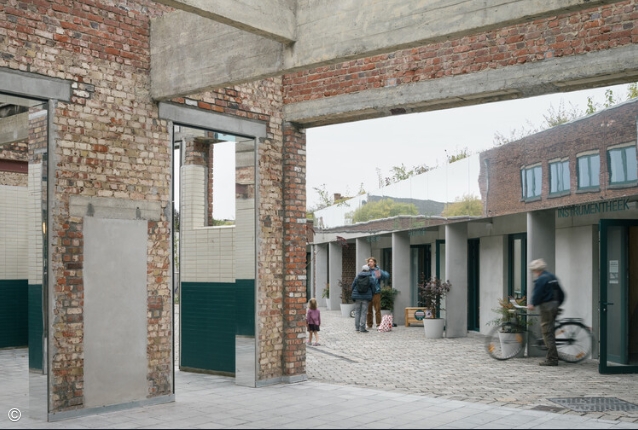Barcelona – The European AHI Award 2025 has officially honored six outstanding architectural heritage interventions that exemplify the evolving role of heritage conservation in modern European society. Held at the historic Paranimf Hall of the Escola Industrial in Barcelona, this seventh edition spotlighted projects commissioned entirely by public institutions — underlining the increasing relevance of cultural heritage in public policy and territorial development.
Out of 238 submissions from 24 countries, four projects received first prizes and two received special mentions. Winning entries are located in Antwerp, Kortrijk, Olot, Ancient Corinth, and Milan, with each praised for demonstrating innovative reuse, civic engagement, and environmental sensitivity.
The AHI Award — founded in 2011 by the Barcelona-based Architectural Heritage Intervention (AHI) platform and the Architects’ Association of Catalonia — was created to elevate the perception of built heritage not only as a cultural legacy but also as an agent of sustainable development. The award receives support from the Government of Catalonia, Barcelona City Council, and the Metropolitan Area of Barcelona.
More than 1,400 projects from 33 European nations have been submitted since the award’s inception. All projects are documented in the open-access AHI Digital Archive, offering a critical resource for professionals and policymakers alike.
This year’s jury emphasized the social, environmental, and economic value of heritage intervention when supported by public governance. “These projects go beyond conservation — they offer new ways of living with and through heritage,” one juror noted.
Among the awarded interventions are adaptive reuse of historical buildings, revitalized urban public spaces, and reintegrated archaeological landscapes — all of which reflect a pan-European commitment to preserving cultural memory while embracing forward-looking design strategies.
As Southeast Asia similarly grapples with balancing development and conservation, initiatives like the AHI Awards provide valuable reference points for regional governments, planners, and architects. The increasing integration of cultural preservation within public infrastructure and planning underscores the global momentum toward sustainable cultural policy.







